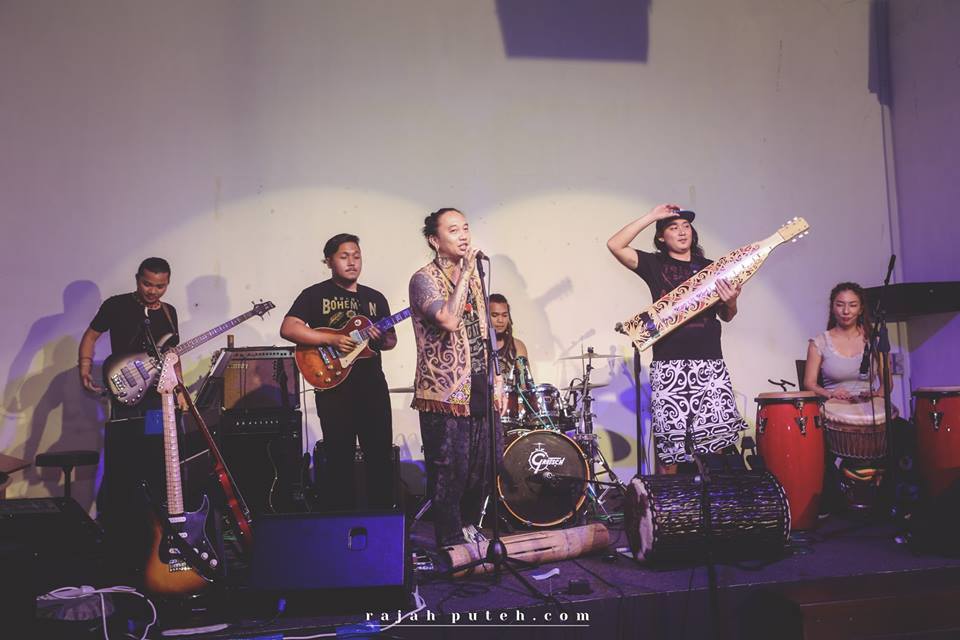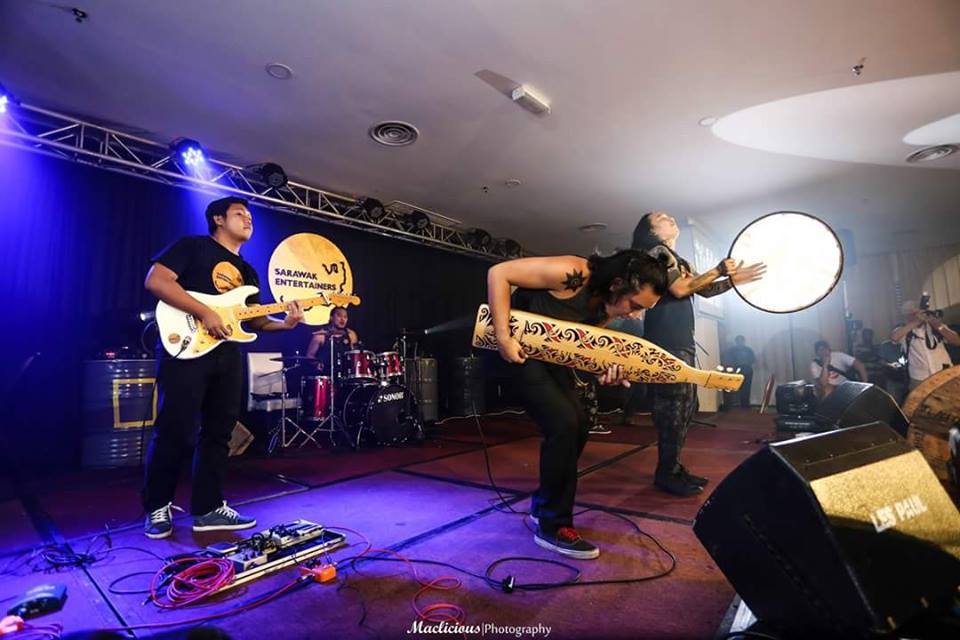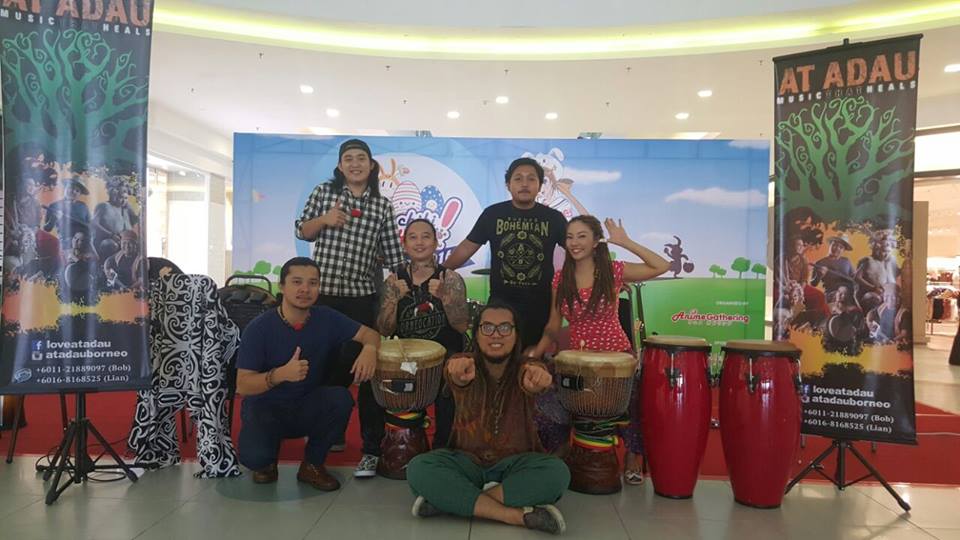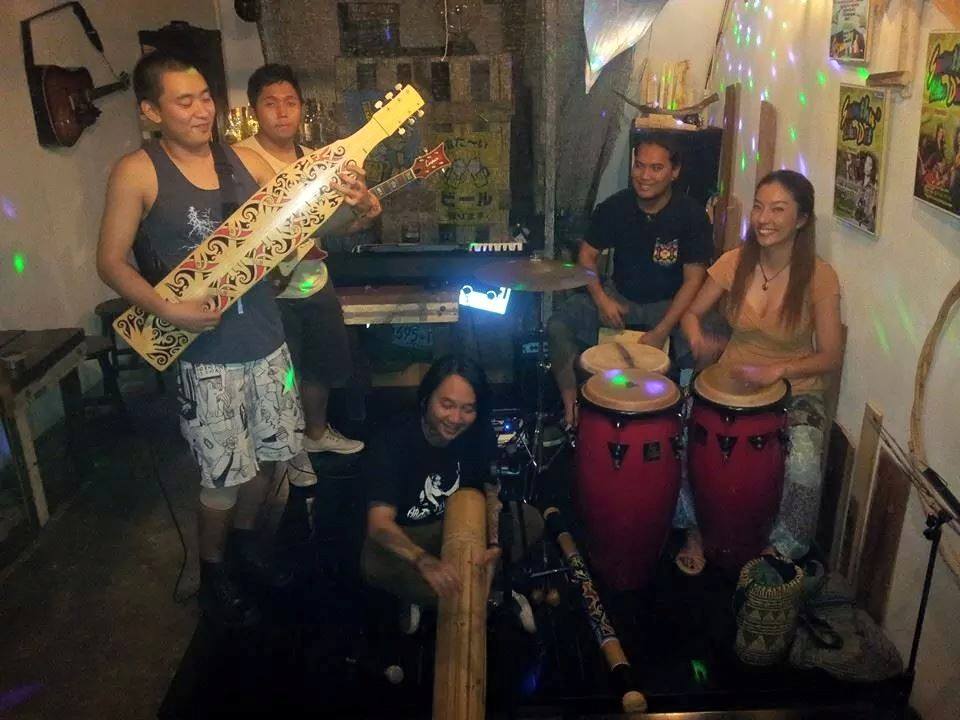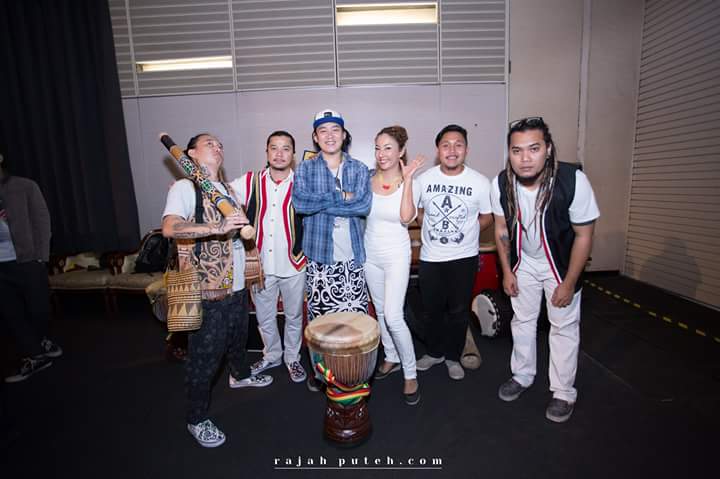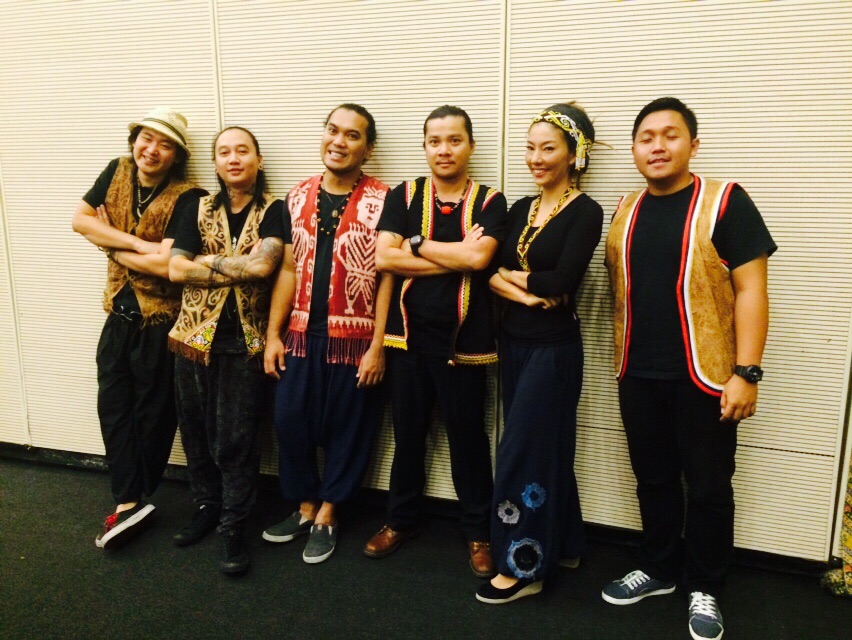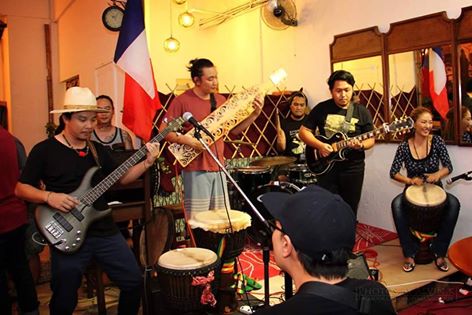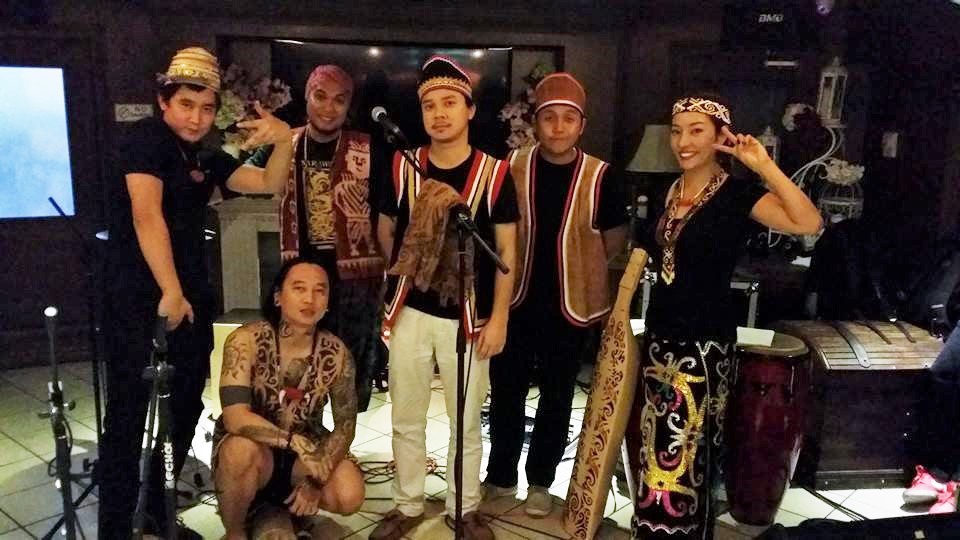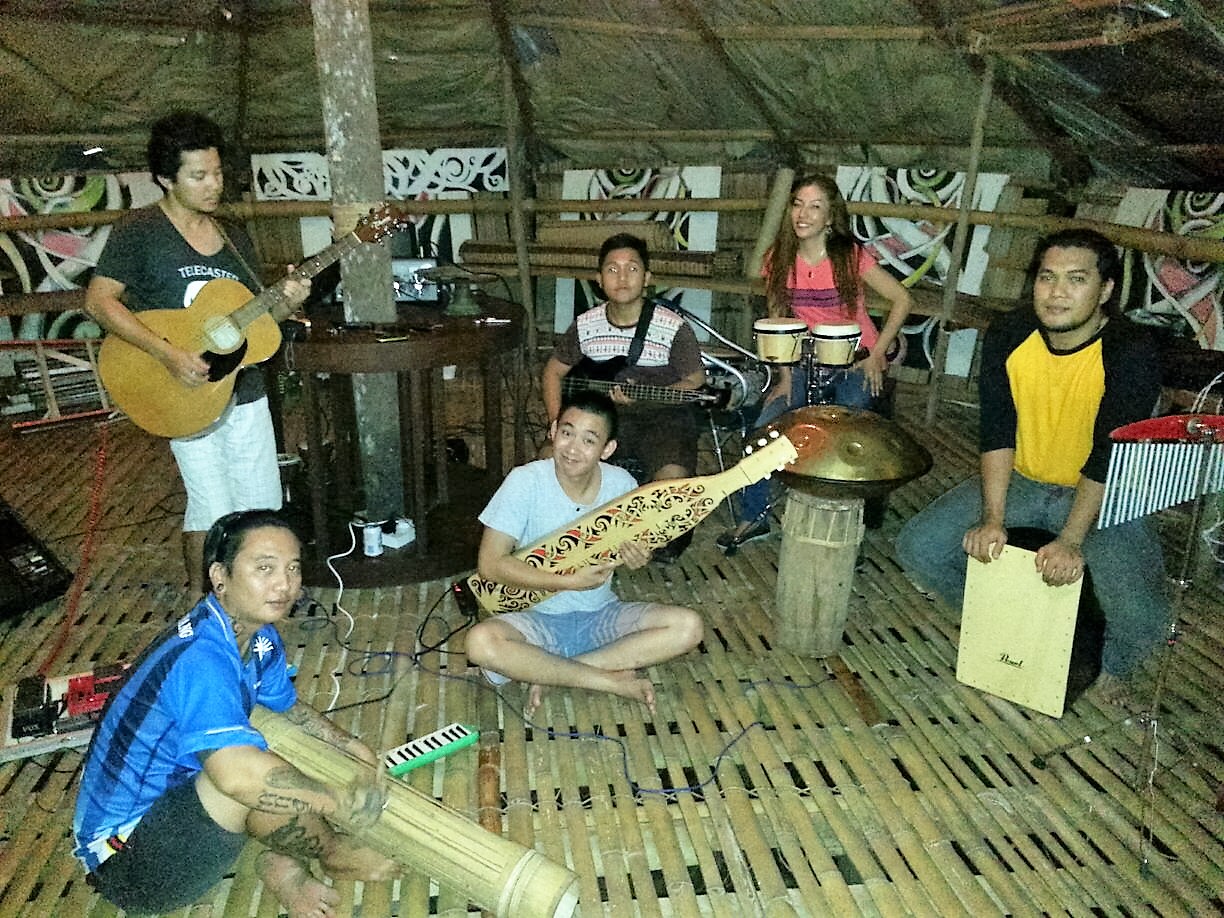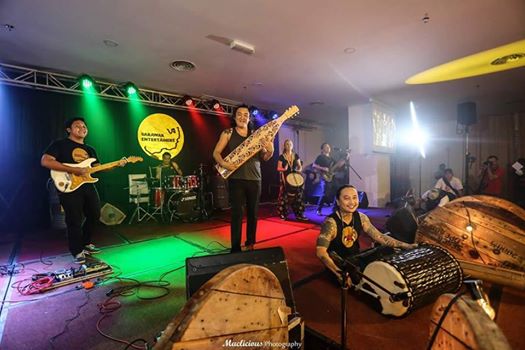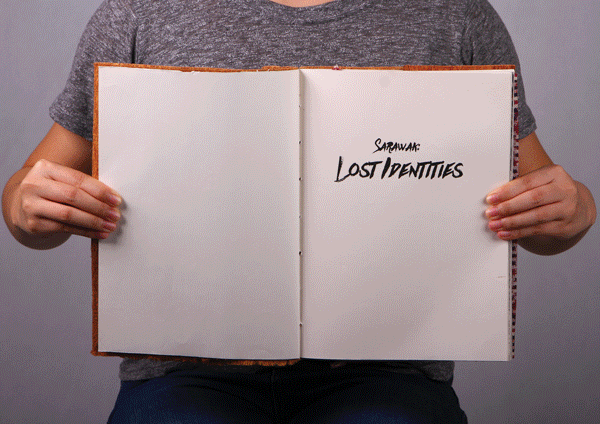At Adau - Music That Heals
At Adau is a 6 person traditional music band from Kuching, Sarawak, Malaysia. Newly formed in 2014, this inspiring band has been actively performing in festivals and events. Soothing and lively, their music and approach makes you want to get up and dance to the tune.
"Music in itself is healing,
it's an explosive expression of humanity,
it's something we are all touched by,
no matter what culture we're from,
everyone loves music." ~ Billy Joel
At Adau members
Ezra
EZRA TEKOLA (EZRA) - Ezra began playing Sape when he was 12 years old. The son of a professional Sape player, Ezra received instruction from his father and other close relatives from his village in this traditional instrument. Ezra has become versatile in playing Sape' and plays both traditional and modern styles. Ezra performs on many national and international stages. In addition to playing the Sape, Ezea crafts his own Sape' as well.
Lian
JACKSON LIAN NGAU (LIAN) - Following in his parents' footsteps, Lian became involved in cultural music and dance at a very young age. He developed a profound level of skill in traditional dance (Ngajat) and is active in playing traditional musical instruments. He plays Perutong, a Bidayuh bamboo zither. Lian refers to himself as a modern warrior with a mission to save cultural traditions from dying in this modern world. He believes that by saving and loving our own traditions and respecting other traditions, we can promote peace in the world. He has performed with Lan E Tuyang band, has made multiple world tours in Europe to promote Sarawak and the culture of Borneo through the performance of Kenyah traditional warrior dance and music.
Bob
MELDRICK UDOS (BOB) - Bob started to be involved in music at the age of 12, playing the drum set, guitar and piano. Through his collaborations with various bands in Kuching as a session drummer Bob was exposed to a wide variety of styles and experience. Inspired by the Sape' master known as Mathew Ngau Jau, who is a living national heritage of Malaysia, Bob has started learning the traditional percussion of Sarawak. Bob has a great passion for percussion instruments including the conga, djembe, Cajon and hang drum. He brings the skills and experiences from his active involvement in traditional and modern music bands to help create the unique sound of At Adau.
Juju
JU HYUN LEE (JUJU) - Juju, originally from South Korea, found her deep passion for the Djembe in 2002, at a drum circle on Hippie Hills, Golden Gate Park, San Francisco. She fell deeply in love with drumming and continued her drumming journey with the Tugu Drum Circle in Malaysia and with world renowned percussionists and drum teachers Steve Thornton, Michael Pluznick and Timothy Dabrowsky. Her passion and excitement for drumming is boundless and continues to grow with each new musical experience.
Fonso
ALFANSO MCKENZIE (FONSO) - A bass guitar enthusiast since a young age, Alfonso started playing music with a garage band as a bassist in 1999, actively participating in local gigs and band battles. Alfonso’s proficiency with the bass extended into other stringed instruments leading him to become involved in cultural shows at the national level during his college years, playing various stringed instruments such as Sape', guitar and bass.
Sidik
CEDRIC RISENG (SIDIK) - Sidik has been playing the guitar since he was 12 years old. He has been actively involved in music through his church and has played an active role in the choir over many years. He expanded his musical skills and experiences by playing with numerous indie bands in Sarawak. His creativity and experimental mind give him the capability to produce innovative sounds and bring the music to a different level.
B: Borneo Art Collective AA: At Adau
B: Could you describe your group and group title in brief?
AA:
• At Adau originated in Sarawak, Malaysia on the island of Borneo.
• We started as an experimental world music band in June, 2014 driven by the spirit of traditional Sape tunes blended with musical instruments from around the world.
• At Adau combines the traditional Bornean sounds of the Sape and Perutong with drums, percussion, electric and bass guitar, as well as traditional instruments such as: Djembe and Dunun from West Africa, Congas from Latin America, Daf from Persia, bamboo Rainstick, and many more.
• At Adau experiments with the fusion of modern and traditional instruments to create innovative and timeless music.
• The name At Adau comes from the combination of words from two Bornean languages. At refers to "roots" in the Bidayuh tribe's language, and Adau in the Kenyah dialect is the name of the preferred tree used to craft the Sape, a traditional string instrument of Borneo.
• Our catch phrase is "Music that Heals". Our goal is to inspire people and share the beauty of music. Giving back to our communities, appreciation and preservation of nature and the environment, healing the world and making it a better place are all important to us, and that's what we would like to accomplish through our music.
B: Why and how did you start this music group?
AA:
• Passion in music since schools days for all of us
• Charmed by the tune of Orang Ulu traditional lute called Sape.
• We started in June 2014, free jamming with other instruments (traditional and modern) such as guitar, Sape, bass guitar, djembe and cajon and started to compose our own tunes/music.
• Found amazing beauty in this fusion of traditional and modern instruments and became more focused
B: Who/what influenced you to begin this music group?
AA:
• The one and only Sarawak Sape’ Master Mr. Mathew Ngau Jau, who is a living national heritage of Malaysia, is our greatest inspiration. His love and passion for the Sape and his love of sharing music with others has greatly influenced us.
• The master Perutong player, Arthur Borman(Baicas), is another great inspiration. His love for tradition and how passionately he gives and shares his music with others has impacted us all.
• Inspired by their music, we blend the Sape with other instruments.
• We are also inspired by Dewa Budjana(Indonesia), Gusteja(Bali), Tuku Kame(Malaysia), Sung Pau (Taiwan).
• Post-rock indie, African, ambient, nature.
• Rainforest World Music Festival and all the amazing musicians from different parts of the world who come and share their music.
B: Could you tell us more about the history and your stories about your instruments?
AA:
• Perotong/Serotong aka Bidayuh Bamboo Zither which is made from big, thick bamboo. It is a Bidayuh traditional instrument that is tuned like their gong set. It also replaced the gong in old days. It is played by 5 to 6 people or more on special occasions to have a louder sound and harmony but can also be played by one person.
Arthur Borman(Baicas) and Perotong - Bidayuh Bamboo Zither
• Sape: The Sape is a boat shaped lute with a short neck and is a member of the plucked cordophone family. The Sape was historically introduced by the orang ulu communities; kenyah, kayan and kelabit tribe. Melodies for the Sape are inspired by dreams, of which there are 35 in the core repertoire. There are two specific modes in which the dances are performed in "the men's long house dance" and "the women's long house dance". Nowadays the Sape is played in social occasions, but it was originally played for ritual ceremonies as a means to induce the performers into trance. When playing the sape the player sits down in such a way that the sape is supported by the player’s legs with the sape held close to the chest. The player mainly plucks the lowest tuned or the bottom string and the rest of the strings are plucked as drones.
Sarawak Sape’ Master Mr. Mathew Ngau Jau
B: What was on your radar when this group was created?
AA:
• In the beginning it was fascinating to feel how well these traditional instruments blended with other instruments.
• As most of us are Sarawakian, we have a very deep love for our tradition. We don't want our beautiful tradition to die and we want it to be appreciated. When we pair the traditional elements with modern instruments and genres, we feel our tradition will be better appreciated and viewed as a cool thing to learn, thus encouraging younger generations not to forget about our tradition.
• We felt this is a way for many people to appreciate our tradition and to inspire people.
Arthur Borman (Baicas) performing
B: Where do you see your group evolving in the near future? What are you busy working on at the moment?
AA:
• We hope in the future we can promote beautiful Borneo traditional instruments, music and art to the world.
• And through At Adau, Borneo, specifically Sarawak will be known as a land of diverse culture and arts.
• We want to position our band to appreciate more of our tradition and give back to the community by working with schools and communities to promote our culture.
• Currently, we are working on a few events coming up and working on our first album titled "Journey" which will be ready by end of this month and launch in May or June 2016.
• We have a big event in May in collaboration with Sarawak Tourism Board (STB). This is our first International Event since our group formed 1.5 years ago and we believe it's only a start :)
• The filming of our next music video is scheduled for May (Our first MV, Pimonu won the Asean International Film Festival & Awards (AIFFA) 2015 in short film category).
• We are working on more experimental projects for the next album. We would like to combine different genres and collaborate with other musicians to expand the boundaries of what we play and reach more people's hearts.
• Working to learn other musical instruments from other tribes of Borneo and also to know more about their culture.
• We want to show that traditional music instruments can be as cool as the Western/modern musical instruments and can be played in various musical genres.
Rainforest Music Festival
B: How do you see Borneo music at the moment?
AA:
• We feel Borneo music is on the rise. We see a few Sarawakians musicians, especially a number of Sape players, are penetrating international world music scenes.
• We see more of the younger generation have started to learn Sape.
• Borneo music has great potential with its diverse culture and beauty. When it is appreciated by other people around the world, it will motivate people locally. Now with the internet, the world is more connected and many remote cultures reach different parts of the world. Maybe this is the time when more traditional music will travel far and be shared by people all around the world.
Performance during Rainforest Music Festival
B: How about the musical instrument making and appreciation platform in Borneo? What do you see could be done for its development?
AA:
• As of now most of the traditional musical instruments are only made by a small group of people and their numbers are limited. When it comes to Sape making, there are some like Matthew Ngau Jau, Arthur Borman, Salomon Gau, Babai, Tommy and etc. These people are some of the most talented people and their effort in continuing the legacy of craftsmanship is highly respected. Their effort, passion and love, inspire people and should be appreciated more.
• We would like to see more appreciation from the government as well. A lot of people lose interest or stop continuing the legacy due to it being financially unsustainable. If people see more culture / tradition preservation efforts are being done by government, many younger generations would see it as a possible career. Also establishing some facilities such as an ethnic cultural centre would promote more people to learn and to be exposed, as well as to bring financial support to the people who continue the tradition.
Lian and Papa playing
B: How could people access your music at the moment? Where do you play your music?
AA:
• For now, our first MV, Pimonu is on youtube; by typing “At adau Pimonu,” everyone can watch and listen to our music and some other few live performances in youtube. More to come!
• We are releasing our first album soon and also will start digital distribution. People can download / buy our music digitally as well.
• We have a Facebook page which has nearly 2000 fans at the moment. Follow us there to find out about our upcoming gigs and catch us live in Sarawak and beyond.
B: Please recommend stories/projects/individuals/groups that we should reach out to in order to expand the Borneo Art Collective network.
AA: Mathew Ngau Jau, Arthur Borman, Salomon Gau, Babai (Francis Kujen) and Tommy Bulen (SCV), Vincent Liang Ngau (Kenyah Craft and Arts).
B: What would be your message to aspiring fellow Borneo Artists?
AA:
• Firstly, Know your tradition and roots.
• Learn the original well before exploiting/experimenting.
• Don’t be afraid to try and fail.
• Imagine hard, there is no limit in music.
• Try to find ways to help the world for the better. Since music is a very powerful tool that reaches all of our hearts, we can deliver amazing messages through music and contribute to the community, society and world.



